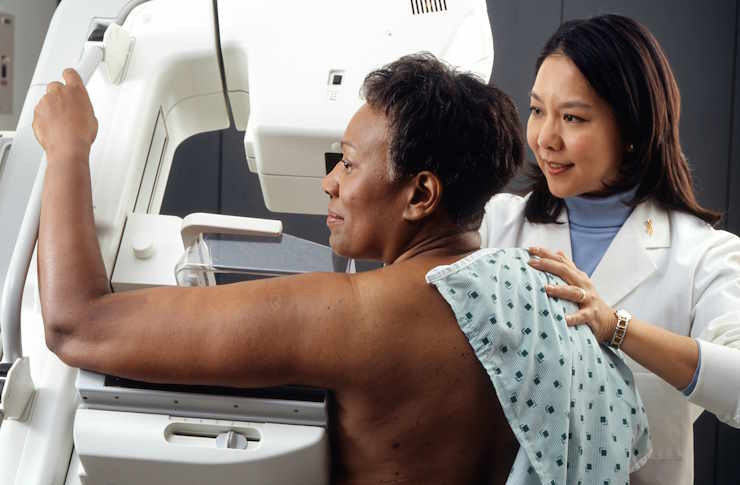Don't Ignore These Key Signs of Colon Cancer
Colon cancer is a serious health concern that affects many individuals worldwide. Early detection is crucial for successful treatment. This article explores the key signs of colon cancer that should never be ignored and the importance of seeking medical attention promptly.

What are the most common signs of colon cancer?
Colon cancer often develops without noticeable symptoms in its early stages. However, as the disease progresses, several signs may emerge. The most common indicators include persistent changes in bowel habits, rectal bleeding or blood in stool, unexplained weight loss, persistent fatigue, and abdominal pain and cramping. It’s essential to be aware of these symptoms and not dismiss them as minor health issues.
How do persistent changes in bowel habits indicate colon cancer?
One of the most significant signs of colon cancer is a persistent change in bowel habits. This may manifest as diarrhea, constipation, or a change in the consistency of stools that lasts for more than a few weeks. If you notice that your regular bowel patterns have altered significantly without an apparent reason, it’s crucial to consult a healthcare professional. These changes could be indicative of a growing tumor obstructing the passage of stool through the colon.
What does rectal bleeding or blood in stool signify?
Rectal bleeding or the presence of blood in stool is another critical sign that should never be ignored. While it can be caused by less serious conditions like hemorrhoids, it’s also a common symptom of colon cancer. The blood may appear bright red or very dark, and it can be mixed with the stool or coat the outside. Any instance of blood in the stool warrants immediate medical attention to determine the underlying cause and rule out colon cancer.
Why is unexplained weight loss a concerning symptom?
Unexplained weight loss, particularly when it occurs rapidly and without changes in diet or exercise habits, can be a sign of various health issues, including colon cancer. Cancerous tumors often consume a significant amount of the body’s energy, leading to unintended weight loss. If you’ve lost 10 pounds or more without trying, it’s important to seek medical evaluation to identify the cause and ensure early intervention if necessary.
How does persistent fatigue relate to colon cancer?
Persistent fatigue that doesn’t improve with rest can be a symptom of many health conditions, including colon cancer. As cancer progresses, it can lead to blood loss through the stool, resulting in anemia. This reduction in red blood cells can cause extreme tiredness, weakness, and shortness of breath. If you’re experiencing ongoing fatigue that interferes with your daily activities, it’s essential to consult a healthcare provider for a thorough assessment.
What types of abdominal pain and cramping should raise concern?
Abdominal pain and cramping can be associated with various digestive issues, but when persistent or severe, they may indicate colon cancer. The pain may be caused by a growing tumor that obstructs the bowel or spreads to surrounding tissues. If you experience frequent gas, bloating, fullness, or cramps that don’t resolve with over-the-counter remedies, it’s crucial to seek medical evaluation. Pay particular attention to pain that worsens over time or is accompanied by other symptoms mentioned in this article.
Colon cancer screening methods have significantly improved in recent years, allowing for earlier detection and more effective treatment. In Trinidad and Tobago, the Ministry of Health recommends regular screenings for individuals over 50 or those with a family history of colon cancer. Colonoscopy remains the gold standard for detection, but other options like fecal immunochemical tests (FIT) and flexible sigmoidoscopy are also available.
While discussing colon cancer treatment options, it’s important to consider the associated costs, as they can vary significantly depending on the stage of cancer and the chosen treatment method. Here’s a general overview of colon cancer treatment costs in Trinidad and Tobago:
| Treatment Type | Estimated Cost Range (TTD) | Notes |
|---|---|---|
| Surgery | 50,000 - 150,000 | Varies based on complexity and hospital |
| Chemotherapy | 10,000 - 50,000 per cycle | Multiple cycles may be required |
| Radiation Therapy | 20,000 - 80,000 | Depends on number of sessions |
| Targeted Therapy | 30,000 - 100,000 per month | Often used for advanced stages |
Prices, rates, or cost estimates mentioned in this article are based on the latest available information but may change over time. Independent research is advised before making financial decisions.
Early detection and prompt treatment are crucial in the fight against colon cancer. By being aware of these key signs and seeking medical attention when they persist, you increase the chances of successful treatment and recovery. Remember, regular screenings are essential, especially for those at higher risk. Don’t hesitate to discuss any concerns with your healthcare provider, as they can guide you through the appropriate steps for diagnosis and treatment if necessary.
The shared information of this article is up-to-date as of the publishing date. For more up-to-date information, please conduct your own research.
This article is for informational purposes only and should not be considered medical advice. Please consult a qualified healthcare professional for personalized guidance and treatment.






